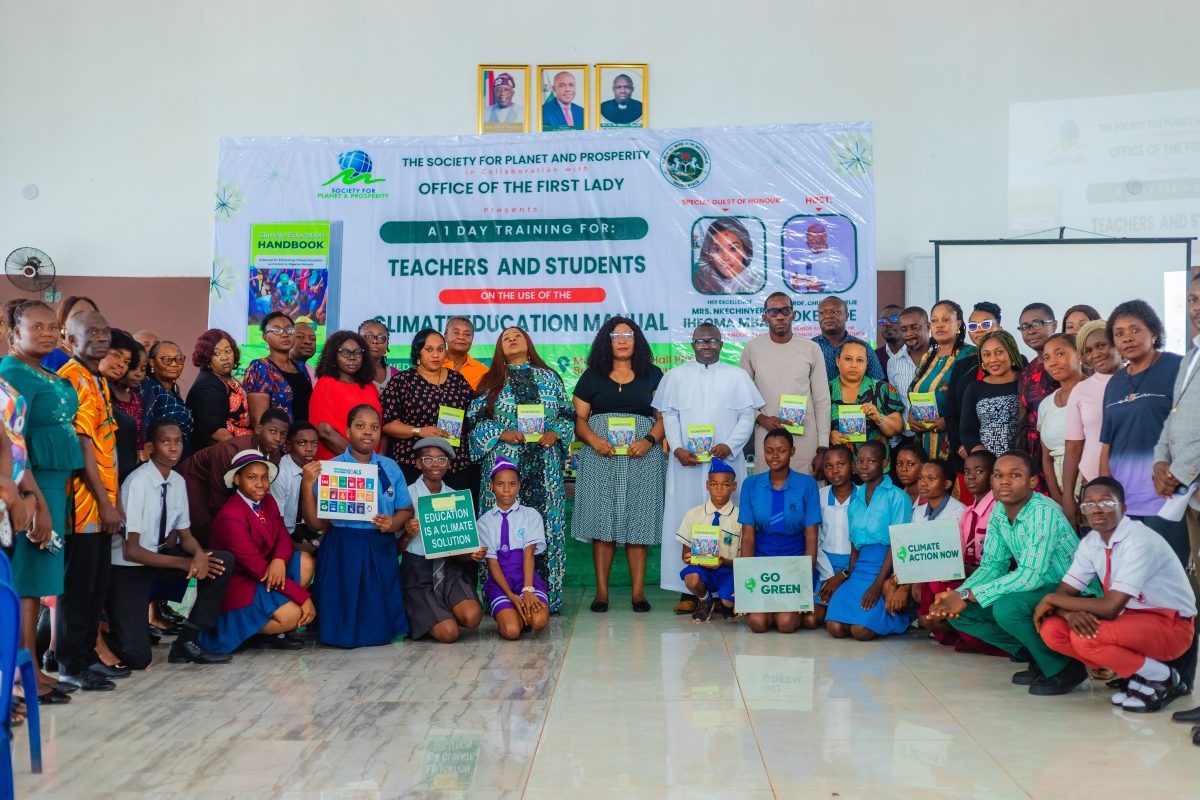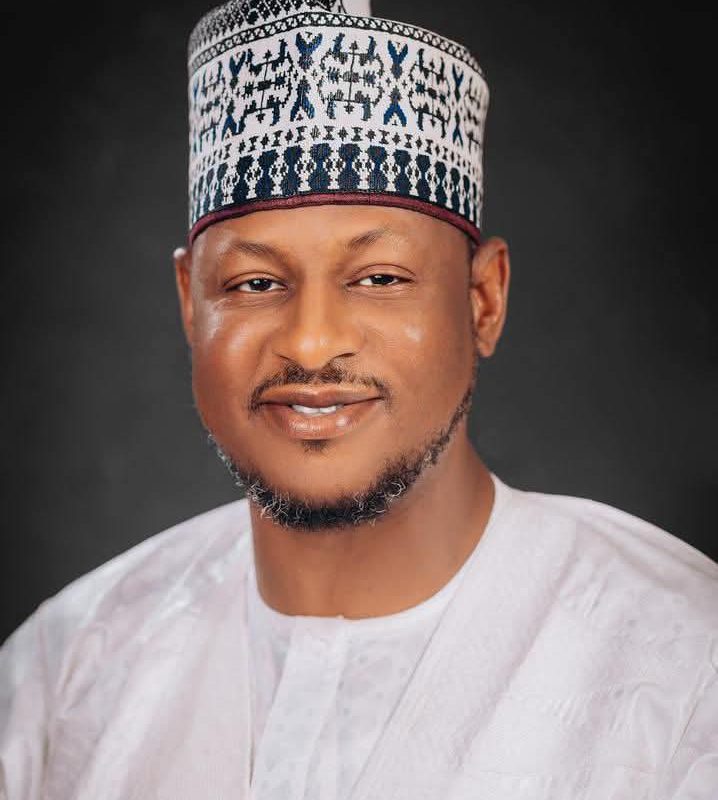In 2024, during the first edition of the Subnational Climate Governance Performance Rating and Ranking, Katsina placed 25th with only 64 points. We did not think at that time that such showing was acceptable or representative of the capacity that the State has when it comes to all-round climate action. So, we recalibrated. This year, the State took the second position with an impressive score of 310 points — a 23-place leap that represents one of the fastest governance transformations in Nigeria’s recent history.
This extraordinary turnaround was driven directly by strategically following the benchmarking and performance insights provided through the Subnational Climate Governance Ranking, which gave us a clearer sense of where we stood and what needed to change. The report did not just rank; it guided.
Katsina’s growth in climate governance has been remarkable. The State has carefully sought to improve in all indices and this has reflected in measurable, real-world transformation over the past year. The SCGPR provided a structured mirror that helped us identify institutional weaknesses, budgetary gaps, and implementation deficits — and to fix them in record time.
Much of the credit goes to His Excellency Governor Dikko Umar Radda, whose vision to leverage climate action for development and poverty reduction became the cornerstone of our Katsina Green Growth Agenda. Since adopting this evidence-based approach, over 1.5 million residents across 22 local government areas have directly benefited from improved environmental services, access to solar energy, and enhanced agricultural productivity.
Following insights from the ranking template, we established dedicated climate governance units across 12 ministries and launched coordination mechanisms involving all 34 local governments. This structure, inspired by the SCGPR performance indicators on institutional arrangements, has streamlined decision-making and improved accountability. Today, over 300 civil servants have received climate policy training, and local governments now integrate climate budgeting into their annual plans.
These institutional changes have not only improved coordination but also helped attract external technical assistance worth ₦2.4 billion from national and international partners — investments that are being channelled into rural electrification, waste management, and afforestation.
The passage and implementation of the Katsina State Climate Resilience and Green Economy Policy (2024) marked a new era. Through this policy, we have aligned our goals with Nigeria’s Nationally Determined Contributions (NDCs) and Sustainable Development Goals (SDGs), ensuring climate governance serves as a platform for economic inclusion and social progress.
The target of the new policy is to mobilised over ₦6 billion in green-sector investment and creating 2,000 new jobs in clean energy and sustainable agriculture.
Already, these efforts are yielding tangible socio-economic dividends — 1,800 smallholder farmers have received solar irrigation support, boosting dry-season yields by up to 25%, while reducing dependency on diesel pumps.
We have recorded notable progress in solar mini-grid installations, dry-season farming initiatives, and community-led afforestation drives. The Solar for All initiative has connected over 150 rural schools and health centres to reliable solar power, improving education and healthcare delivery for more than 250,000 people.
Meanwhile, our community tree-planting campaign — inspired by the Ranking’s emphasis on project visibility and citizen engagement — has resulted in the planting of 1.2 million seedlings across the state, reducing desert encroachment and providing economic opportunities for youth and women cooperatives.
These interventions have reduced rural energy poverty, curbed migration pressures, and enhanced household incomes.
Our commitment to climate finance was deepened after the 2024 SCGPR highlighted our weak budgetary framework. In response, the State increased climate-related allocations by 30% in 2025, while introducing provisions for the issuance of Green Bonds. These bonds are projected to raise ₦10 billion over the next three years, earmarked for climate-smart agriculture, flood management, and renewable energy expansion.
We have also launched the Katsina Climate Watch, a digital transparency portal tracking project updates and offering public education on climate issues. Since its inception, the platform has reached over 500,000 residents online and mobilised 10,000 volunteers for community climate projects. This innovation, shaped by the SCGPR’s Online Visibility pillar, has transformed climate awareness from a government agenda into a people’s movement.
The increased visibility and transparency have enhanced citizens’ trust and encouraged collaboration between local government councils, youth groups, and development partners.
Our progress is reflected across the SCGPR’s five thematic areas. Under Climate Institutional Arrangements, Katsina rose from 24 points and the 32nd position in 2024 to 110 points and 2nd position in 2025. In Policy and Legal Frameworks, the State moved from 5 points and 30th position to 50 points and 4th position. For Budgetary Allocation to Climate Change Projects, Katsina advanced from 5 points and 32nd position to 60 points and 2nd position, and under Project Implementation and Monitoring, we rose from 15 to 55 points. Online Visibility also grew from 15 to 35 points.
These are not just numerical improvements — they represent better schools powered by solar, cleaner streets, thriving small businesses, and farmers earning more from climate-smart innovations.
While we celebrate this milestone, we view it as a baseline, not a ceiling. Katsina remains committed to building a sustainable, climate-smart future. We will deepen partnerships with federal institutions, development partners, and civil societies to move from second to first place — not for the title, but for the people whose lives are now demonstrably better because of research-led governance reform.
Kudos must of course go to the Department of Climate Change (Federal Ministry of Environment), Professor Chukwumerije Okereke, the Society for Planet and Prosperity, and all other partners for this brilliant and innovative initiative. This has not only motivated State-level action but has also provided a clear evidence-based pathway to more effective and efficient subnational climate governance.
Under the visionary leadership of the Governor, His Excellency Governor Dikko Umar Radda, Katsina State is determined to maintain and improve on its performance in the third rating and ranking project in 2026.
Professor Mohammed Al-Amin
Special Adviser on Climate Change to the Governor of Katsina State






